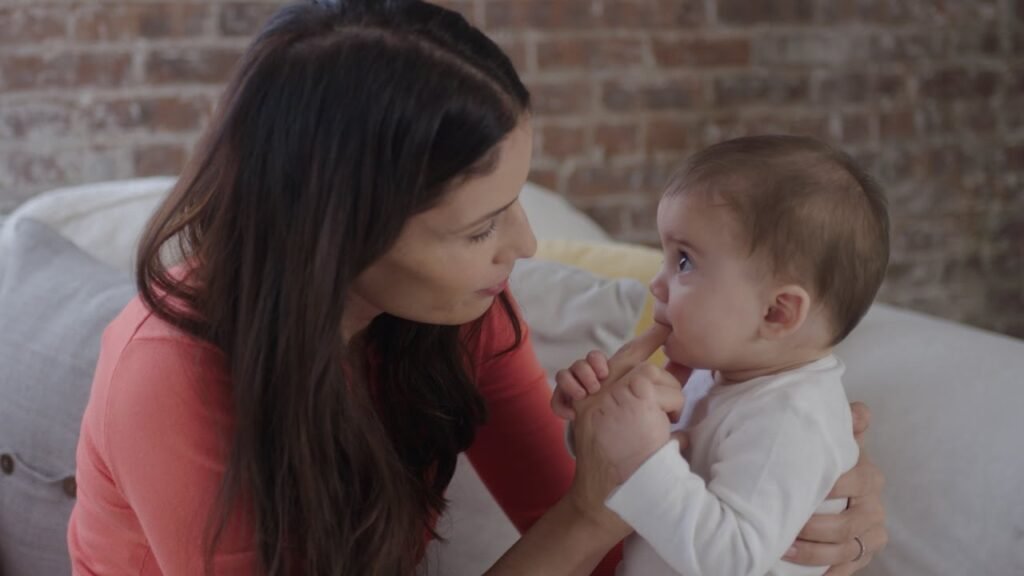The Average Age of Baby Teething

Have you ever wondered when babies typically start getting their first teeth? The average age at which babies start teething can vary, but most babies will begin teething around 6 months old. Teething can be a challenging time for both babies and parents, so it's important to be prepared and know what to expect. In this article, we will explore the average age that babies get their teeth and provide tips for helping your little one through this developmental milestone.
At what age does late teething typically occur?
Is your baby late to start teething? While most babies get their first teeth between 6-12 months, some may take a little longer. If your little one is 15 months old and still doesn't have any signs of teething, it may be a good idea to schedule a visit to the dentist. Late teething is not necessarily a cause for concern, but it's always best to get a professional opinion to ensure everything is developing as it should.
Should a 1 year old have teeth?
Yes, it is completely normal for a 1 year old to have teeth. In fact, the average age for babies to start getting teeth is between 6 to 12 months. However, every child is different and some may get their teeth earlier or later. If your baby still doesn't have any teeth by 18 months, it may be a good idea to consult with a pediatric dentist to ensure everything is developing properly.
Teething can be a challenging time for both babies and parents. Signs of teething include drooling, irritability, and chewing on objects. To help soothe your baby's discomfort, you can try giving them a cold teething ring or gentle massage their gums. It's important to maintain good oral hygiene even before your baby's teeth come in by gently wiping their gums with a soft, damp cloth.
As your baby's teeth start to come in, it's important to establish a dental care routine. Begin brushing their teeth with a soft-bristled brush and a smear of fluoride toothpaste. Regular dental check-ups are also essential for monitoring your child's oral health and addressing any concerns early on. Remember, every child is different, so don't hesitate to reach out to a pediatric dentist if you have any questions or concerns about your baby's teeth development.
How many teeth should a 9 month old have?
At 9 months old, your baby should typically have around 6 teeth. This includes 4 teeth at the top and 2 at the bottom. These are temporary teeth, also known as baby teeth, and they play an important role in helping your baby chew solid foods and develop speech.
Between the ages of 13 to 19 months, your baby's tooth count may double to a total of 12 teeth. This rapid growth and development of baby teeth is a normal part of your child's early years. It's important to care for these teeth with gentle brushing and regular dental check-ups to ensure your baby's oral health is on the right track.
As your baby grows and develops, their teeth will continue to emerge and grow. By knowing what to expect at each stage, you can help ensure that your baby's dental health is well-taken care of from the start. Keep an eye out for any signs of discomfort or problems with their teeth, and consult with a dentist if needed.
Unveiling the Truth: Baby Teething and Its Impact
Teething is a natural process that all babies go through, but its impact on both the baby and the parents can be significant. From the discomfort and pain experienced by the baby to the sleepless nights and worry of the parents, teething can be a challenging time for all involved. Understanding the signs and symptoms of teething, as well as ways to help soothe a teething baby, can make this stage more manageable for everyone. With patience, love, and proper care, both the baby and parents can navigate through this developmental milestone with ease.
Decoding Baby Teething: What You Need to Know
Baby teething can be a challenging time for both parents and infants, but understanding the process can help alleviate some of the stress. It typically begins around six months of age and can last until around three years old. Common symptoms include drooling, irritability, and swollen gums. Providing teething toys or a cool washcloth for them to chew on can help soothe their discomfort. Remember to keep an eye out for any signs of fever or severe pain, as these may require medical attention. By staying informed and prepared, you can navigate through the teething stage with confidence and ease.
In summary, the average age at which babies get their first teeth is around 6 to 10 months old. It is important for parents to remember that every child is different and may start teething at varying times. Keeping an eye out for common signs of teething and providing appropriate care can help make this developmental milestone more manageable for both baby and caregiver.